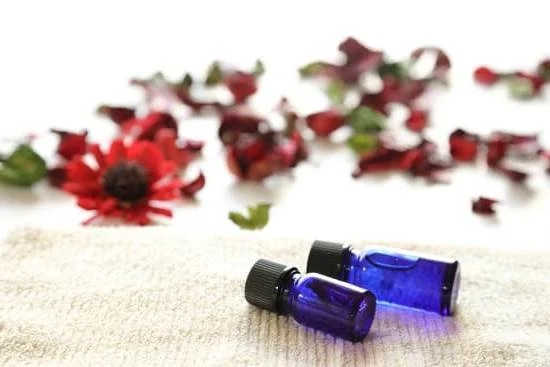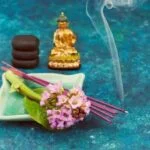Aromatherapy oils have become increasingly popular in recent years as people seek natural and holistic approaches to healing and well-being. But what exactly do aromatherapy oils mean? In this introductory section, we will explore the concept of aromatherapy oils, their significance in the field of holistic healing, and their growing usage in modern society.
Aromatherapy oils, also known as essential oils, are highly concentrated plant extracts that capture the natural aromatic compounds found in various plants. These oils have been used for centuries in different cultures around the world for their therapeutic properties. They are commonly obtained through steam distillation or cold pressing methods, preserving the potent essences of flowers, leaves, bark, and other plant parts.
The use of aromatherapy oils is rooted in the belief that these natural substances can enhance physical, mental, and emotional well-being. When inhaled or applied to the skin, essential oils can stimulate certain receptors in our bodies and trigger a range of responses. They can promote relaxation, relieve stress and anxiety, uplift mood, improve sleep quality, boost immunity, alleviate pain and inflammation, and much more.
As people increasingly turn to alternative therapies for health maintenance and self-care practices, aromatherapy oils have gained widespread recognition as a valuable tool for enhancing wellness. From spa treatments to household cleaning products to personal care items like lotions and candles – aromatherapy has permeated various aspects of daily life. With its long-standing historical roots and scientifically-backed benefits, aromatherapy continues to captivate individuals seeking a more natural approach to healing and overall well-being.
The Origins and History of Aromatherapy Oils
Aromatherapy, as a practice, has deep roots in ancient civilizations such as Egypt, China, and India. These cultures recognized the power of essential oils and regarded them as sacred and potent substances. In fact, the use of aromatherapy oils can be traced back thousands of years to these ancient civilizations.
The Egyptians were well-known for their extensive use of fragrant oils for both medicinal and religious purposes. They developed various methods to extract essential oils from plants such as distillation and maceration. These oils were used in rituals, embalming practices, cosmetics, and even for therapeutic treatments.
Similarly, the Chinese have a long-standing tradition of using aromatic herbs and spices for their healing properties. The practice of blending different botanical ingredients to create harmonious scents was greatly valued in Chinese culture. They believed that these scents could restore balance and promote overall well-being.
In India, aromatherapy was an integral part of Ayurvedic medicine. Essential oils were used in massage therapies called Abhyanga to promote relaxation and detoxification. Indian traditional medicine recognized the connection between fragrance and mood enhancement, incorporating aromatherapy into their holistic healing practices.
Overall, the origins and history of aromatherapy oils reveal their deep cultural significance and their value in promoting physical, mental, and spiritual well-being throughout history. Today, we can still benefit from these ancient traditions by incorporating aromatherapy oils into our daily lives.
Understanding the Science Behind Aromatherapy Oils
Aromatherapy has been practiced for centuries, but understanding the science behind how it works is still a relatively new field of study. The therapeutic effects of aromatherapy oils are believed to be due to their interactions with the limbic system in our bodies.
The limbic system is responsible for regulating emotions, memories, and behaviors. When essential oils are inhaled or applied topically, their molecules enter the bloodstream and travel to the limbic system through the olfactory nerve. This direct pathway allows the molecules to have a powerful effect on our emotions and overall well-being.
Research has shown that different essential oils can have different effects on the limbic system and our bodies as a whole. For example, lavender oil is known for its calming properties and can help reduce anxiety and promote better sleep. Peppermint oil, on the other hand, has invigorating and energizing qualities that can improve focus and mental clarity.
In addition to their impact on emotions, aromatherapy oils also have physical benefits. Some essential oils have antimicrobial properties that can help boost our immune systems and fight infections. Others have anti-inflammatory properties that can help relieve pain and inflammation.
To incorporate aromatherapy oils into your daily life, there are several methods you can try. One popular method is diffusing essential oils using a diffuser or by adding a few drops to a bowl of hot water. This allows the aroma to spread throughout your space, creating a calming or invigorating atmosphere depending on the oil used.
Another way to use aromatherapy oils is by creating homemade blends for massage or skincare purposes. By diluting a few drops of an essential oil with a carrier oil such as jojoba or almond oil, you can create your own personalized blend that suits your specific needs.
When using aromatherapy oils, it is important to keep safety precautions in mind. Essential oils are highly concentrated substances and should not be applied directly to the skin without proper dilution. It is also recommended to perform a patch test before using an essential oil for the first time, as some individuals may have sensitivities or allergies.
Understanding the science behind aromatherapy oils can help enhance your appreciation for their effects on our bodies and minds. By harnessing the power of essential oils and incorporating them into your daily routines, you can experience the numerous benefits they have to offer.
Essential Oils vs. Fragrance Oils
When it comes to aromatherapy oils, it is important to understand the difference between essential oils and fragrance oils. While both may provide pleasant scents, they have contrasting properties and purposes.
Essential Oils
Essential oils are derived from plant materials such as leaves, flowers, bark, and roots through processes like steam distillation or cold pressing. These oils contain natural aromatic compounds that give them their distinct scent and therapeutic properties. Essential oils are highly concentrated and potent, which means that only a small amount is needed to achieve desired effects.
One of the key characteristics of essential oils is their ability to retain the natural essence of the plant they are derived from. This ensures that they contain all the beneficial compounds found in the plant, making them effective for various purposes including physical ailments, emotional well-being and spiritual practices.
Fragrance Oils
On the other hand, fragrance oils are synthetic or artificial blends created in a laboratory to mimic specific scents. These oils are typically made using a combination of chemicals and do not possess any therapeutic benefits like essential oils do. The primary purpose of fragrance oils is solely to provide a pleasant aroma for cosmetic products, candles, soaps, or household cleaning products.
It is important to note that fragrance oils often contain potentially harmful ingredients such as phthalates or other synthetic chemicals that can be harmful when applied directly on the skin or inhaled. As a result, fragrance oils are not recommended for use in aromatherapy practices where therapeutic benefits are sought.
The Importance of Using Pure Essential Oils
When engaging in aromatherapy practices, it is crucial to choose pure essential oils rather than fragrance oils. Pure essential oils offer holistic benefits for both physical and emotional well-being due to their natural composition and unique chemical properties. While fragrance oils may provide a pleasant scent, they do not possess the therapeutic qualities found in essential oils.
To ensure that you are getting pure, therapeutic-grade essential oils, look for reputable brands that adhere to strict quality standards. Labels should indicate that the oil is 100% pure and not blended with any synthetic additives. This guarantees that you are receiving oils that contain all the natural compounds and therapeutic benefits associated with aromatherapy.
Common Types of Aromatherapy Oils and Their Benefits
Lavender Oil: Promoting Relaxation and Sleep
One of the most popular and versatile essential oils is lavender oil. Known for its calming and soothing properties, lavender oil is often used to promote relaxation and improve sleep quality. It has a gentle floral scent that helps to create a peaceful atmosphere, making it an ideal choice for those dealing with stress or insomnia. Lavender oil can be diffused in the bedroom before bedtime or added to bathwater for a rejuvenating soak.
In addition to its relaxation benefits, lavender oil also has anti-inflammatory and analgesic properties. This makes it effective in soothing minor skin irritations such as insect bites, burns, and sunburns. Furthermore, lavender oil can help relieve headaches and migraines when applied topically to the temples or added to a carrier oil for massage.
Peppermint Oil: Enhancing Focus and Energy
Peppermint oil is well-known for its refreshing scent and invigorating properties. It has a cooling effect on the skin and can be used topically to provide relief from muscle pain or tension headaches. When inhaled through aromatherapy practices, peppermint oil may also help alleviate symptoms of colds and congestion due to its natural decongestant properties.
Moreover, peppermint oil has been found to enhance cognitive performance by improving focus, concentration, and mental clarity. Diffusing peppermint oil in a study or work area can promote alertness and productivity. It can also be beneficial during long drives or when feeling fatigued, as its stimulating aroma can provide an energy boost.
Eucalyptus Oil: Clearing Respiratory Passages
Eucalyptus oil is commonly associated with respiratory health due to its expectorant properties. Inhalation of eucalyptus oil through steam inhalation or diffusing can help clear nasal congestion and relieve symptoms of respiratory conditions such as colds, flu, sinusitis, or bronchitis. This oil is also effective in reducing coughs and soothing sore throats.
Additionally, eucalyptus oil has antimicrobial properties that can help fight off bacteria and viruses. It can be used to cleanse the air when diffusing during flu season or in spaces where individuals may be more susceptible to infections. The fresh, minty aroma of eucalyptus oil can also provide a refreshing ambiance in any room.
Tea Tree Oil: Natural Antiseptic and Skin Care
Tea tree oil is renowned for its antibacterial and antifungal properties, making it a popular choice for holistic skin care solutions. When applied topically, tea tree oil can help treat acne and other skin infections by reducing inflammation and combating bacteria. It also has a drying effect that can aid in controlling excess oil production.
Moreover, tea tree oil is an effective natural remedy for common fungal infections such as athlete’s foot or nail fungus. Its powerful antifungal properties inhibit the growth of fungi and promote healing. Tea tree oil can be added to skincare products such as cleansers, toners, or moisturizers, or incorporated into homemade remedies for various skin concerns.
These are just a few examples of commonly used aromatherapy oils and their associated benefits. Understanding the unique properties of each essential oil allows individuals to tailor their aromatherapy practices to meet their specific needs and preferences. Whether seeking relaxation, focus, respiratory relief, or improved skincare, incorporating these essential oils into daily life can unlock numerous benefits for overall well-being.
How to Incorporate Aromatherapy Oils into Daily Life
Introduction:
Aromatherapy oils have gained significant popularity in modern society for their numerous health benefits and therapeutic properties. Incorporating these oils into daily life can enhance overall well-being and promote relaxation, stress relief, and a sense of balance. There are various ways to incorporate aromatherapy oils into everyday routines, allowing individuals to experience the soothing effects of these natural remedies in their own homes.
Practical Tips and Suggestions:
- Diffusing Oils: One of the simplest ways to incorporate aromatherapy oils into daily life is through the use of diffusers. Diffusers disperse essential oils into the air, filling the room with their delightful scents and therapeutic properties. This method is particularly useful for creating a calming atmosphere in bedrooms or workspaces.
- Homemade Blends: Individuals can also create their own personalized blends of aromatherapy oils by combining different essential oils that complement each other’s benefits. For example, lavender oil is known for its relaxing properties, while peppermint oil can invigorate and energize. Mixing a few drops of each oil together can create a unique blend that suits one’s specific needs.
- Massage or Skincare: Aromatherapy oils are commonly used in massage therapy as they can help relax muscles and promote physical well-being. Additionally, incorporating essential oils into skincare routines can provide numerous benefits for the skin. Diluting a few drops of essential oil with a carrier oil such as jojoba or coconut oil can create an effective moisturizer or body lotion.
Safety Precautions:
While incorporating aromatherapy oils into daily life offers many benefits, it is important to use them safely and responsibly. Some key safety precautions include diluting essential oils properly, performing patch tests to check for any allergic reactions, and following proper usage guidelines specific to each oil.
By following these practical tips and safety precautions, individuals can easily integrate the use of aromatherapy oils into their daily lives. The soothing scents and therapeutic properties of these oils can have a profound impact on overall well-being, promoting relaxation, stress relief, and a sense of balance in the midst of busy modern lifestyles.
| Aromatherapy Technique | Description |
|---|---|
| Diffusing Oils | A simple and effective method of dispersing essential oils into the air using a diffuser. |
| Homemade Blends | Creating personalized blends by combining different essential oils that complement each other’s benefits. |
| Massage or Skincare | Using aromatherapy oils in massage therapy or incorporating them into skincare routines for various health benefits. |
Safety Precautions and Proper Usage of Aromatherapy Oils
When it comes to using aromatherapy oils, it is essential to take certain safety precautions and adhere to proper usage guidelines. While these oils can offer numerous health benefits, they are powerful substances that should be used with care. Understanding how to use them safely will ensure a positive and enjoyable experience.
Firstly, one important safety measure when using aromatherapy oils is proper dilution. Essential oils are highly concentrated substances and should never be used undiluted on the skin. Diluting essential oils in carrier oils such as coconut oil or almond oil helps reduce the risk of skin irritation or sensitization. The general rule of thumb for dilution is around 2-3% for adults, which equates to about 12-18 drops of essential oil per ounce of carrier oil.
Patch testing is another crucial step before using any new essential oil. To do this, apply a small amount of diluted oil on a small area of your skin, like your inner forearm or wrist. Observe any reactions such as redness, itching, or swelling over the next 24 hours. If you experience any adverse reactions, do not proceed with using that particular oil.
It’s also important to be aware of any contraindications or allergies related to specific essential oils. For example, some oils may not be safe for use during pregnancy or by individuals with certain medical conditions such as epilepsy or high blood pressure. Researching reliable sources or consulting with a qualified aromatherapist can help identify potential contraindications before use.
Exploring the Future of Aromatherapy Oils
The field of aromatherapy oils is constantly evolving, with new research and developments shaping its future. As more people recognize the benefits of using essential oils for holistic healing, the demand for high-quality products continues to grow. In this section, we will explore some emerging trends and advancements in the world of aromatherapy oils.
One notable trend in aromatherapy is the integration of technology. With the rise of smart devices and wellness apps, people are finding new ways to incorporate essential oils into their daily lives. For instance, there are now diffusers that can be controlled remotely through smartphone applications, allowing users to create customized blends from anywhere in their homes.
Another exciting development is the exploration of different extraction methods to obtain essential oils. While steam distillation remains the most common method, other techniques such as cold pressing and CO2 extraction are gaining popularity. These alternative methods can yield oils with unique properties and higher concentrations of therapeutic compounds.
Furthermore, ongoing research is shedding light on novel uses for aromatherapy oils beyond traditional relaxation and stress relief. Studies have shown promising results indicating that certain essential oils possess antimicrobial properties that can be used to combat bacteria and viruses. Additionally, researchers are investigating the potential benefits of essential oils in pain management and mental health support.
Conclusion
In conclusion, aromatherapy oils are a powerful and increasingly popular tool in the field of holistic healing. Throughout this article, we have explored their origins, delved into the science behind their effects, and discussed how to incorporate them into our daily lives. We have also highlighted the differences between essential oils and fragrance oils, as well as outlined the benefits of common types of aromatherapy oils.
It is clear that aromatherapy oils have a long and rich history, dating back to ancient civilizations such as Egypt, China, and India. These cultures recognized the sacred and powerful nature of essential oils and their ability to promote physical, mental, and emotional well-being. Today, we continue to unlock the potential of these oils through scientific research and ongoing studies.
As we have discussed, there are various ways to incorporate aromatherapy oils into our daily routines. From diffusing oils for relaxation to creating homemade blends for personal care products or using them for massage therapy, there truly is something for everyone. However, it is important to exercise caution when using essential oils and follow proper safety precautions to ensure their effective use.
In embracing the power of aromatherapy oils, we invite readers to explore this world of natural healing and experience the numerous benefits that essential oils can offer. Whether you are seeking stress relief, improved sleep quality, or overall wellness support, there is an oil for you. So go ahead, tap into the ancient wisdom passed down through generations and discover how these remarkable substances can enhance your life.
Frequently Asked Questions
What is the meaning of aromatherapy oils?
Aromatherapy oils, also known as essential oils, are highly concentrated plant extracts that are used for various therapeutic purposes. These oils are derived from different parts of plants, such as the flowers, leaves, bark, or roots.
They are typically obtained through processes like steam distillation or cold pressing. The term “aromatherapy” refers specifically to the use of these oils for their aromatic properties in enhancing physical and psychological well-being.
What is aromatherapy oil good for?
Aromatherapy oil is known for its potential therapeutic benefits on both the body and mind. These oils have been traditionally used for their calming or uplifting scents to promote relaxation and relieve stress.
In addition to their pleasant aroma, aromatherapy oils also possess various medicinal properties that can have positive effects on physical health when used properly. For example, some essential oils like lavender or chamomile may help with sleep disorders or anxiety, while others like eucalyptus or peppermint may be effective in alleviating congestion and respiratory issues.
What is the difference between essential oils and aromatherapy?
While the terms “essential oils” and “aromatherapy” are often used interchangeably, there is a subtle difference between the two concepts. Essential oils refer to the concentrated plant extracts themselves, which can be used in a variety of applications including but not limited to aromatherapy.
On the other hand, aromatherapy is a specific practice that uses essential oils for therapeutic purposes by harnessing their aromatic properties. Aromatherapy involves inhaling the scent of these oils through methods like diffusers or applying them topically via massage or bath products to promote relaxation and improve one’s overall well-being both physically and emotionally.

Are you looking for a natural way to improve your health and wellbeing?
If so, aromatherapy may be the answer for you.





